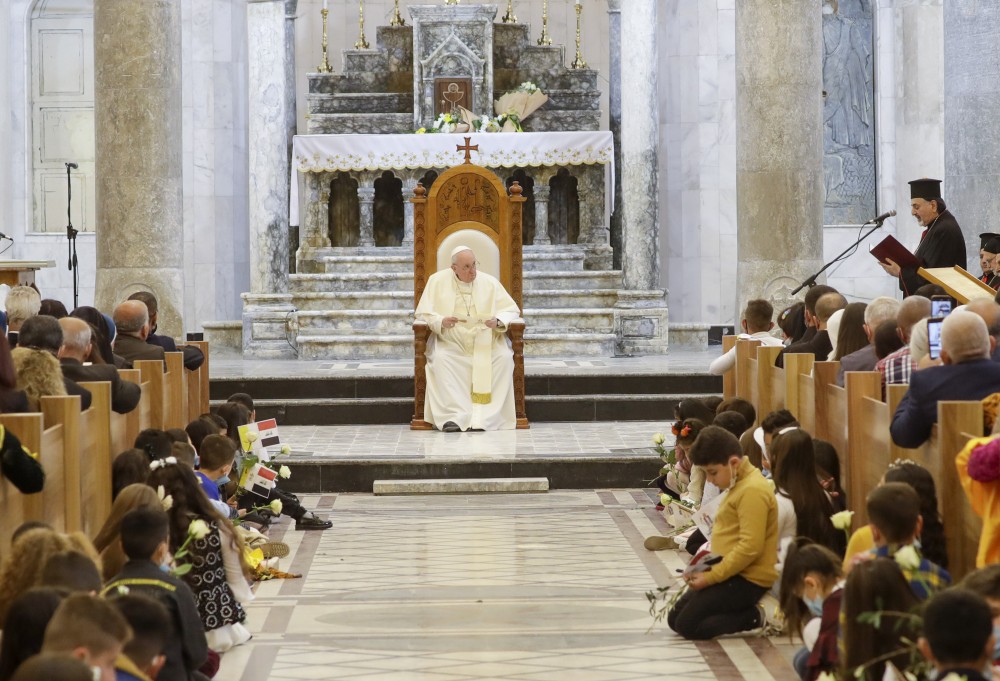On historic Iraqi trip, Pope Francis courts criticism, inspires hope

Pope Francis became the first Roman pontiff to visit Iraq when he embarked on his March 5–8 apostolic visit. There, he visited its diminishing Christian community and spoke with political and religious representatives from different faith groups and denominations, including prominent Muslims.
The book The Last Girl, by Nobel Peace Prize–winner Nadia Murad, which describes the suffering of the ethnic Yazidi people following the 2014 occupation of northern Iraq by the so-called Islamic State, “provided the background for the decision,” he said.
Aboard the return flight, Francis addressed criticism of those who have accused him of being “one step away from heresy” in his commitment to promoting human fraternity among the world’s faiths.





